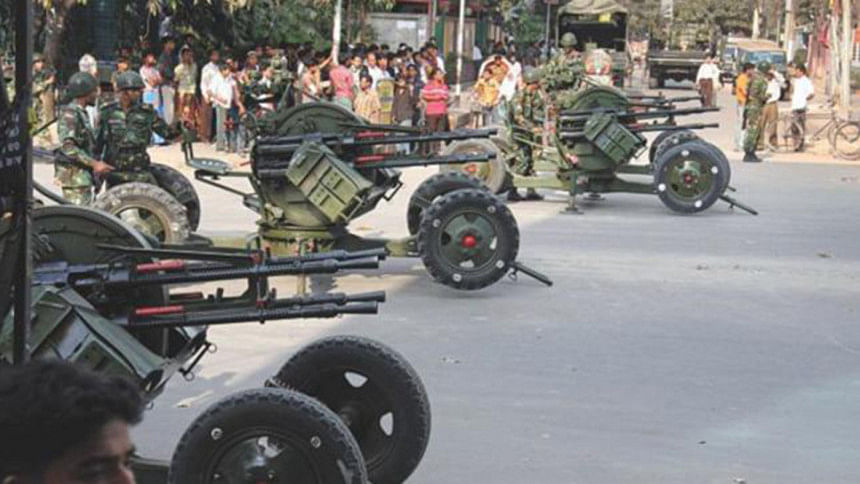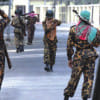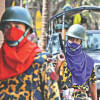Probe intelligence failure: HC

Bangladesh’s High Court has called for investigating the failure of intelligence into the then Bangladesh Rifles in the purview of Pilkhana carnage of 2009.
The call was made in a seven-point recommendation placed forward by Justice Md Nazrul Islam while delivering the death referral and appeal verdicts in the carnage case.
Read more: BDR carnage case: HC confirms death for 139
His seven recommendations are:
- Prohibiting activities or programmes like Operation Dal-Bhat that belittles the pride and self respect of what is Border Guard Bangladesh (BGB) members now
- Prohibiting any activity or programme that “gradually degenerates” the soldierly attitude and behaviour of the members of the BGB
- Taking into consideration and deliver fast decision/reply to problems of the BGB men
- Authorities mitigate all the grievances, if any that still remains inside, of the BGB men
- Consider the leave matter of BGB men which are due and solve all problems regarding leave and other matters
- Form a body and launch inquiry into why the intelligence unit of the then Bangladesh Rifles (BDR) failed to deliver information beforehand and disclose the findings
Read more: BDR carnage was to create political crisis: HC
Two other judges of the bench, its leading member Justice Shawkat Hossain and Justice Md Abu Zafor Siddique, agreed with the recommendations placed by Justice Islam.
Seventy-four people, including 57 army officers, were killed during the mutiny on February 25-26 in 2009 at Pilkhana headquarters of the paramilitary force, later renamed Border Guard Bangladesh (BGB).
The incident took place in the month right after which the then newly-elected Awami League government took oath into the office.

 For all latest news, follow The Daily Star's Google News channel.
For all latest news, follow The Daily Star's Google News channel. 








Comments